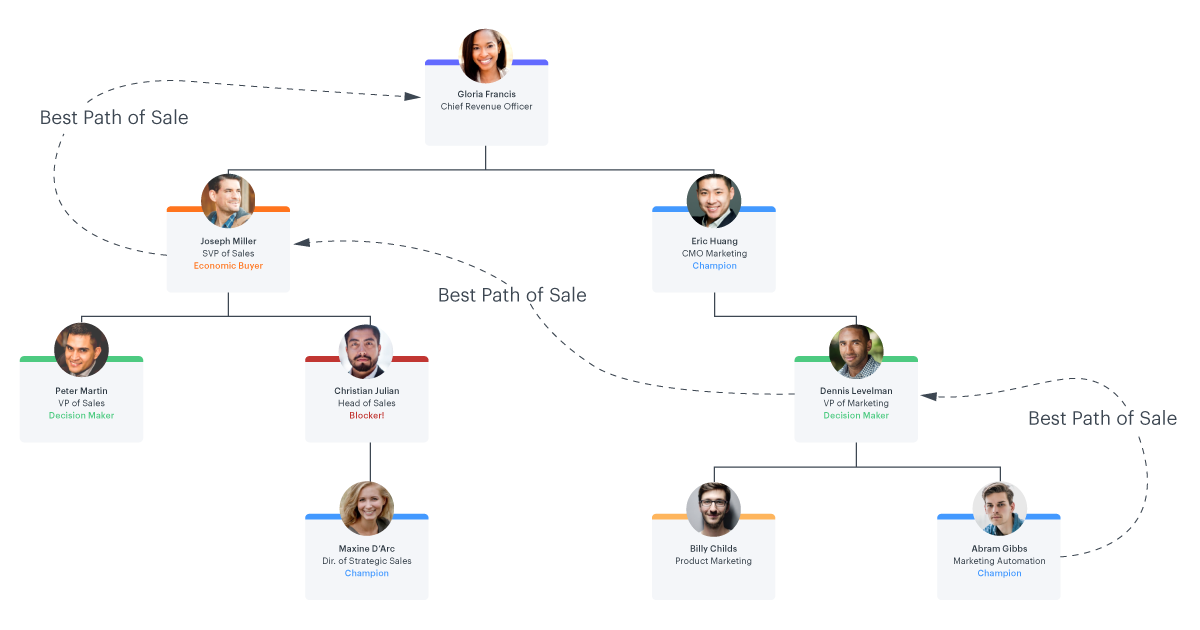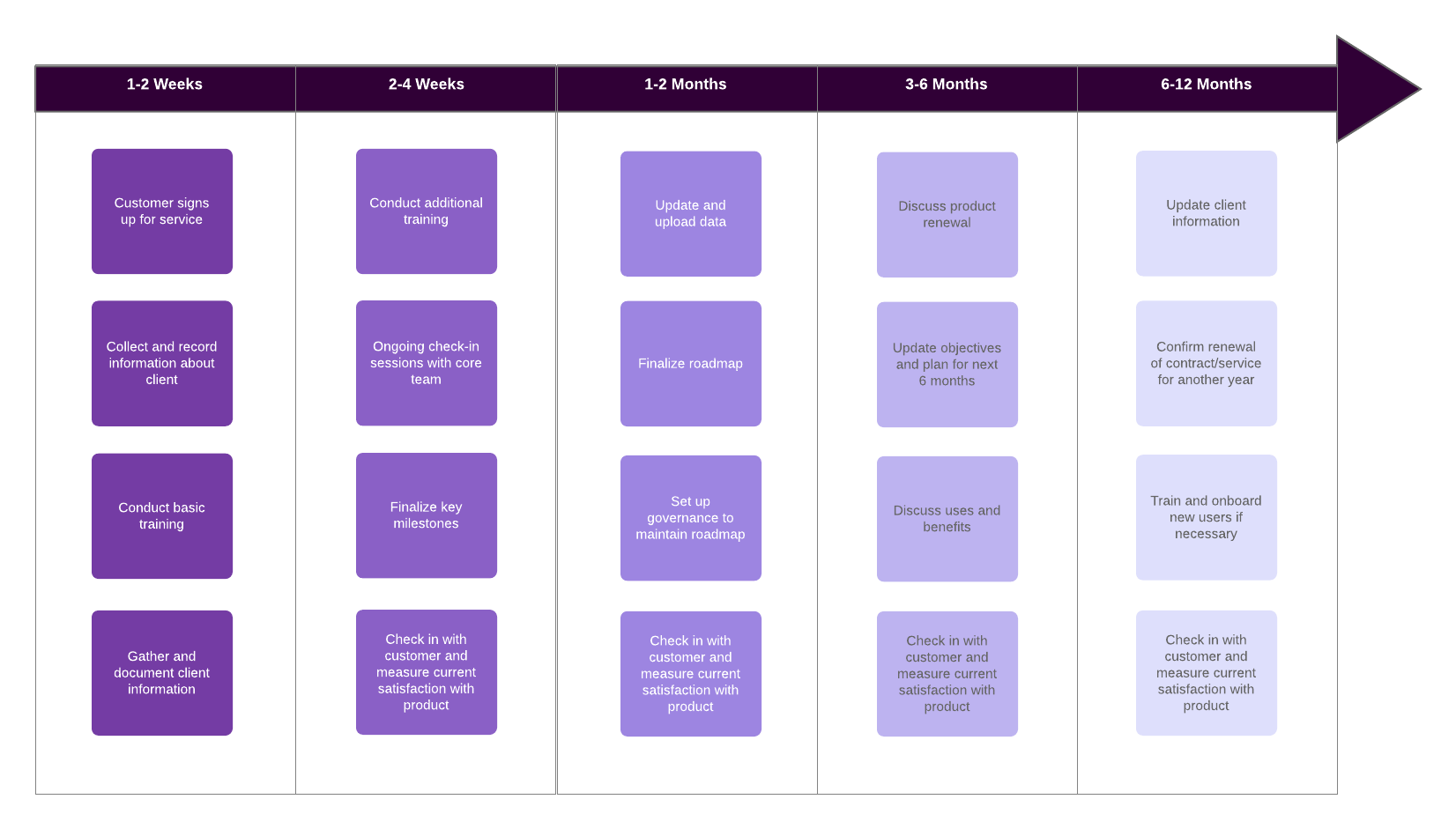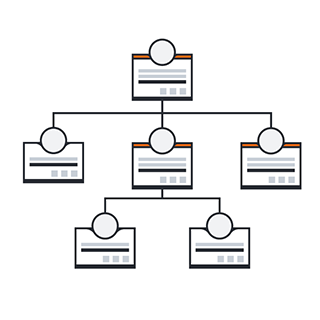Good business is built on good relationships. But nurturing and maintaining relationships is easier said than done, especially in business, where competition for clients is fierce and loyalty is hard-won.
So how can you compete? Enter account management.
Account managers are essential to maintaining strong client relationships and a healthy bottom line. Below we cover the roles and responsibilities of account managers and explain how they contribute to the success of their clients and business.
What is account management?
Account management is a post-sales role that focuses on nurturing client relationships. Account managers have two primary objectives: retain clients’ business and grow those opportunities. They accomplish these objectives by learning what their clients’ goals are and helping their clients achieve them.
Unlike a traditional sales role, which is short-term and focuses on landing the client, the account manager acts as a long-term liaison and, hopefully, a trusted consultant for the client.
In other words, sales is transactional and account management is relational.
By understanding their clients’ needs, the account manager can help answer their questions, solve their problems (ideally with customized product or service solutions), and develop a long-term strategic partnership with the client that extends beyond the original sale.
Among other tasks, the account manager is responsible for:
- Growing the original business partnership through upsells and cross-sells
- Managing relationships between the client and sales and customer support, and
- Retaining their long-term business through contract renewals by ensuring client satisfaction
In short, account management’s job is to delight the customer.
Account manager vs. account executive
There are two primary titles surrounding account management: the account manager and the account executive. Both roles are necessary for any business or firm.
However, you will find that the definitions and scope of responsibilities for each position may vary from organization to organization. (In some cases, the two roles may overlap or even be performed by one person.) This overlap is partly due to the lack of standardization for job titles as well as the differing structure and needs from one business or company to the next.
That being said, you’ll generally see the two roles distinguished as follows:
Account executives are on the front end of business and client development. Filling a more traditional sales role, they are responsible for prospecting, cultivating, and following up on leads. Sometimes called “the hunters,” account execs go out and seek new business opportunities and convert those leads into clients.
In other words, the account executive wins the business, but they typically don’t manage the client afterward. After closing a deal, they introduce the new client to the account manager who then nurtures the ongoing client relationship.
Account managers are often called “the farmers.” They manage the client relationship to build a positive partnership with the client and nurture long-term growth.
The account manager is the point of contact for the assigned accounts (i.e., clients) and the liaison between the clients and the sales and customer service teams. This role is all about communication and relationships.
Ideally, the same account manager will stay with a client account for the duration of the client’s tenure with the company. Depending on their contract, they might represent C-level clients, mid-management, or even project managers. All relationships, all communication, and all presentations come through the account manager.
The importance of account management
Today, long-term business success depends on creating positive customer experiences and increasing customer retention because repeat customers are more profitable than new clients.
Long-term clients tend to buy more from the company over time and refer other clients to your business, reducing operating costs (such as prospecting and lead nurturing). In fact, in the financial sector alone, a 5% increase in customer retention results in a 25% increase in profits. And that trend occurs across industries.
For companies looking to improve client retention, building a robust account management team is crucial.
Once the sales team wins a client, account managers are the main point of contact for your clients. They are essential to resolving conflicts with the client, smoothing communications with sales and customer support, and understanding the client’s goals and pain points in order to best meet their needs.
Account managers are the client’s champion within the organization and one of the biggest influences on a client’s experience with your business.
When 89% of customers begin business with a competitor following a poor customer experience, effective account management is vital.
Supporting customer retention efforts
Because account managers have the primary relationship with your clients, they are your frontline support for customer retention strategies. Plus, as the client champion and liaison, account managers are uniquely positioned to ensure your business’s efforts and communications with (and about) your clients are consistent across every team.
Communicate regularly and manage expectations
Communication can make or break any relationship, so good communication is key for maintaining positive client experiences.
Account managers help prevent communication breakdowns and ensure the client receives the information they want and need. They fulfill this responsibility by setting clear expectations, regularly communicating with the client on strategies, goals, and successes (e.g., KPIs and ROI metrics), and resolving issues or conflicts in a timely manner.
Nurture a positive relationship with the entire team
If the account manager is the only contact the client has with the company, the relationship may be at risk if the account manager leaves.
To create a more streamlined handoff and strengthen the client-company ties, the account manager should actively include other members of the client support team (e.g., sales, marketing, etc.) in the relationship.
For example, the account manager can bring a sales rep to a client meeting, give credit to other team members when reporting project successes, and include profiles about team members in a newsletter or email update.
Sales teams can also use account maps to keep the entire org on the same page and retain client information if an account manager leaves the company. Account maps visualize the political landscape of a company and highlight champions, blockers, and other stakeholders whose consensus you need to close a deal or grow an account.

We recommend building an account map at the start of the sales cycle, as these visuals ensure smooth handoffs from the account executive to account manager, so account managers can quickly see what was sold, what the client’s objectives are, and what information has been communicated. However, account managers should continue adding information to the account map to keep track of relationships built through the customer’s lifecycle.
Create a client success roadmap
Account management should lead client success efforts by creating or managing a clear customer roadmap. A roadmap of your clients’ journeys can ensure consistency in communication and messaging, maintain clear scheduling, and keep team members on the same page at each step of the client experience.
By mapping out the onboarding process, management workflows, and communication calendar, account managers can streamline the client success process.

Lucidchart is an intelligent diagramming solution that helps account management nurture positive client relationships and deliver high-quality experiences at every touchpoint.
Customizable templates make it easy for busy account managers to build account maps, document client communications, and visualize workflows so nothing gets lost in the shuffle. And because Lucidchart integrates with Salesforce, account managers can make these visuals available to everyone on the account record.
Try this powerful sales solution both before and after a closed-won deal to persuade clients to close and encourage upselling opportunities in the future.

Ensure a smooth handoff to account management and continue nurturing customer relationships with account maps.
Learn howAbout Lucidchart
Lucidchart, a cloud-based intelligent diagramming application, is a core component of Lucid Software's Visual Collaboration Suite. This intuitive, cloud-based solution empowers teams to collaborate in real-time to build flowcharts, mockups, UML diagrams, customer journey maps, and more. Lucidchart propels teams forward to build the future faster. Lucid is proud to serve top businesses around the world, including customers such as Google, GE, and NBC Universal, and 99% of the Fortune 500. Lucid partners with industry leaders, including Google, Atlassian, and Microsoft. Since its founding, Lucid has received numerous awards for its products, business, and workplace culture. For more information, visit lucidchart.com.
Related articles
7 skills every key account manager needs
Learn 7 skills you need to excel at your job, whether you're a key account manager, you're building long-term strategic partnerships, or you're a sales lead.
6 key product owner responsibilities
Product owners wear several hats in order to maximize the value of the products created by Scrum teams. Review six key product owner responsibilities and what tools you can use to fulfill them.
